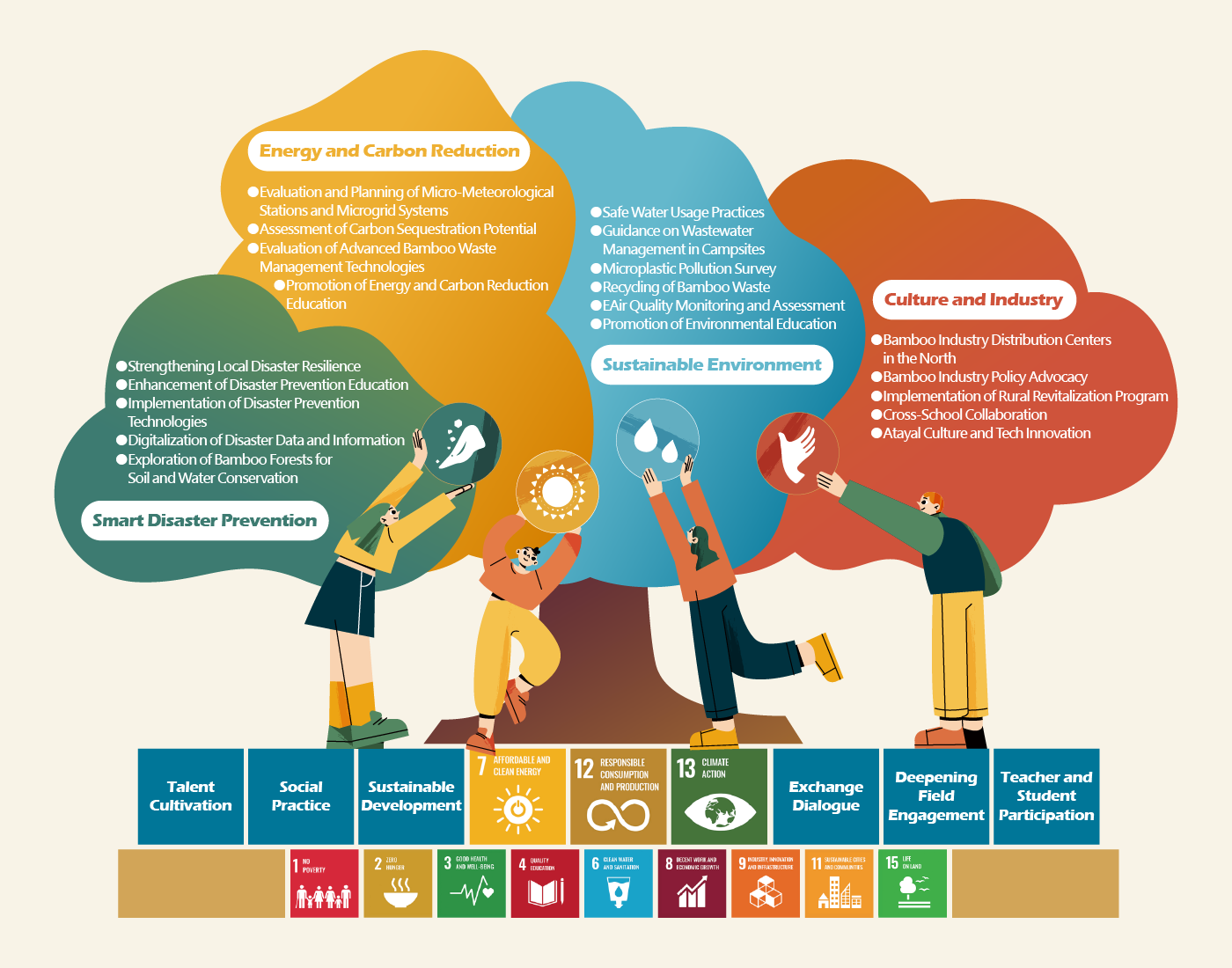ABOUT
Introduction
Exploring “local DNA” as the cornerstone of sustaining local life and livelihoods is essential. A comprehensive approach to addressing various structural challenges and formulating effective solutions is key to the survival and development of local industries. This project, deeply rooted in the Fuxing District of Taoyuan City, prioritizes “sustainability” with the aim of achieving a harmonious balance between industry advancement and forest preservation. Beyond continuously enhancing community resilience, ensuring environmental sustainability, advocating for sound industrial policies, and nurturing local talent, the project also focuses on aligning with regulations, facilitating energy transitions, and exploring bamboo forest carbon sequestration. The ultimate goal is to leverage interdisciplinary collaboration to drive local climate action, environmental stewardship, and public governance, further strengthening the resilience and vitality of the Fuxing indigenous community.
Addressing climate change is not just a challenge but also an opportunity for transformation and growth. In this phase of the project, we will build on previous achievements while integrating new focus areas to further advance sustainable development in Fuxing District.
For the Smart Disaster Prevention sub-project, we will enhance local disaster resilience by strengthening community-led preparedness and response capabilities. The Energy and Carbon Reduction sub-project will continue driving net-zero carbon initiatives and renewable energy development, fostering opportunities for community energy transition and greening efforts. The Sustainable Environment sub-project will provide environmental data to nurture local talent while promoting a balance between ecological conservation and industry growth. Lastly, the Culture and Industry sub-project will integrate technology and cultural innovation to support the economic development and heritage preservation of the Atayal people in Fuxing District.
Through the implementation of this project, we strive to carry forward the Atayal term “mbhoyaw,” which signifies abundance, prosperity, and growth.






